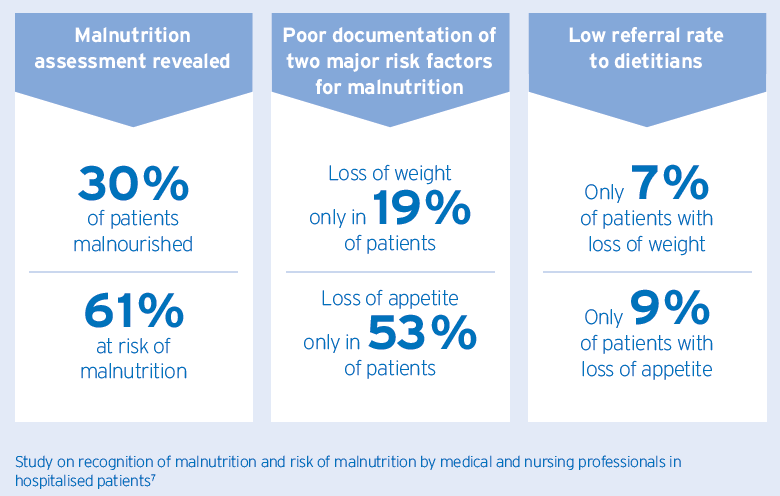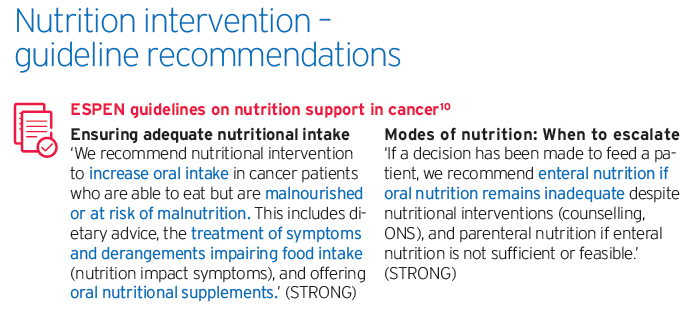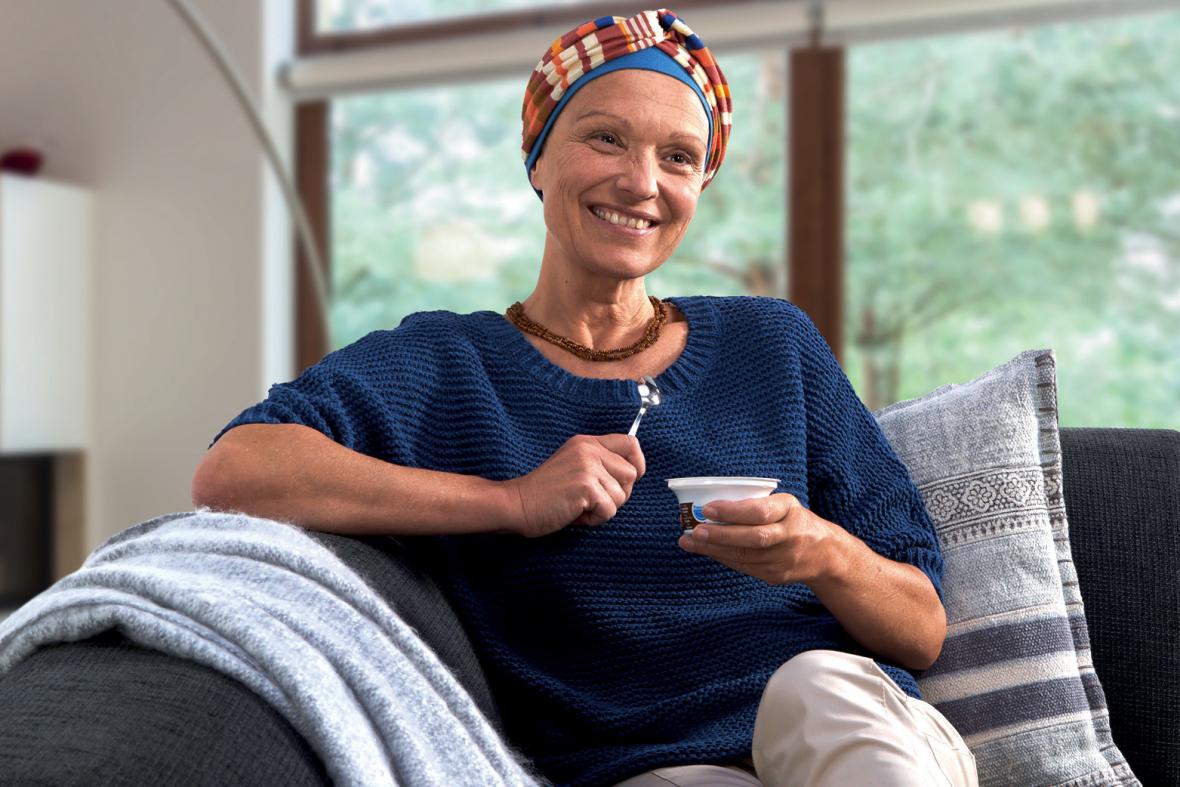
Anorexia
May impact patients' outcome
Cancer-related anorexia - a highly prevalent side effect
Appetite disorders often come with cancer and anorexia is one symptom of the cancer cachexia syndrome.1,2
At the time of diagnosis, a prevalence up to 50–66 % is reported.3 In advanced cancer patients with different primary cancer sites the incidence of anorexia was 66 %.4

Causes of cancer anorexia are multifactorial1,5,6
- Antitumor treatments such as chemotherapy or radiotherapy
- Inflammatory response caused by the tumor
- Distress and reduced desire to eat due to cancer diagnosis
have a negative effect on appetite.
Anorexia may impact patients’ outcome
Anorexia is significantly associated with weight loss
- Results in reduced caloric intake1,2,7
- Anorexia is significantly associated with weight loss ≥ 10 % (OR 13.4, p < 0.001)8
Anorexia negatively affects patients’ outcome1,2
- Negative impacts on patients’ perceptions and quality of life
- May lead to increased morbidity and mortality
Appetite loss is significantly associated with reduced survival9
Counteract anorexia and weight loss

Nutrition intervention is effective
Dietary intervention with high-energy ONS containing high protein levels and omega-3 PUFA during chemotherapy led to
- decrease in side effects10
- loss of appetite
- fatigue
- neuropathy
- increased energy and protein intake10
- improvement in body weight and skeletal muscle mass/lean body mass11-13
- positive modulation of inflammation markers10,12
- improvement in quality of life and functional status14
You’d like to know more about
- The relationship between the nutritional status and anorexia
- Multimodal treatment of cancer-related anorexia?
Please download:



